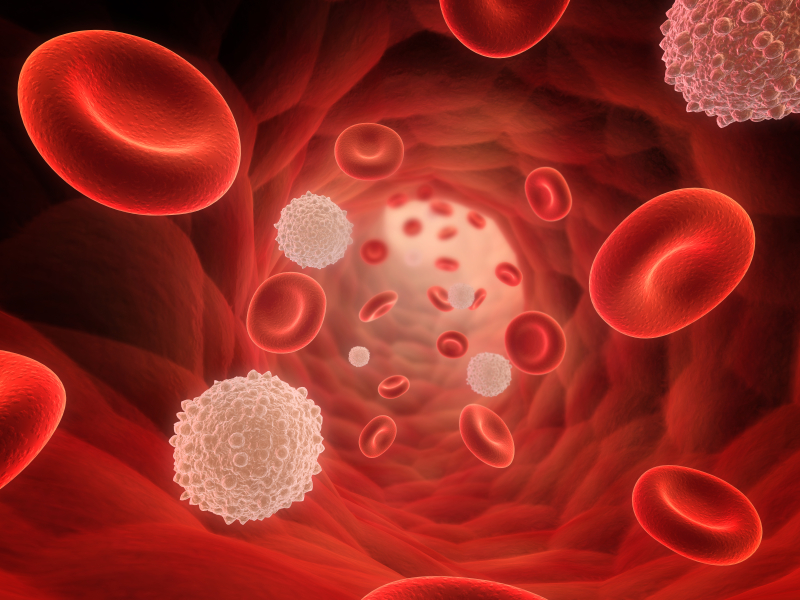Anti-Coagulants May Treat Psychosis
Schizophrenia is generally associated with a reduction in volume of the hippocampus. It is thought that the illness results from a predisposition that is triggered by an event such as a trauma or drug use that causes the release of chemicals that damage neurons. Recently, following the finding that five patients with schizophrenia and recurrent deep vein thrombosis (a blood clotting disorder) achieved remission of their psychosis after being treated with the anticoagulant warfarin (Coumadin) and have been able to go years with antipsychotic treatment, researchers Silvia Hoirisch-Clapauch and Antonio Egidio Nardi searched the existing literature for any connection between blood clotting and hippocampal neurogenesis, hoping to find a protein that could encourage neuronal growth in the hippocampus.
They found tissue-plasminogen activator (tPA), which facilitates the conversion of plasminogen to plasmin (the major enzyme responsible for breaking down blood clots) and plays a role in the repair of hippocampal neurons after stress. Low tPA activity is associated with clotting disorders and psychotic events. The drug warfarin reduces blood clotting, and also increases tPA activity, which may explain its effectiveness in treating the five patients who had both schizophrenia and deep vein thrombosis.
Abnormalities in schizophrenia that could be related to low tPA include deficient dopamine transmission at D1 receptors in the prefrontal cortex, impaired cleavage of the precursor to brain-derived neurotrophic factor (pro-BDNF, which can kill cells) to mature BDNF (which helps cells survive), abnormal NMDA receptor-mediated signaling, reduced Akt phosphorylation, and abnormal activation of reelin. The researchers found that all five patients had more than one tPA-related vulnerability to deep vein thrombosis, including high fasting blood insulin, high homocysteine, altered prothrombin activity, and anti-phospho-antibodies.
The same investigators have also examined whether plasmin plays a role in schizophrenia.
Plasmin breaks down proteins in blood plasma, including fibrin clots. In a study of 70 patients with schizophrenia and 98 age-matched normal control participants, the researchers examined the role of plasmin and substances that activate plasmin. Almost all of the patients with schizophrenia had low plasmin activity, which is associated with prevalence of stroke, severe dysmenorrhea during early adolescence, and stillbirth or preterm birth related to severe placental insufficiency. Study participants who were in the middle of an acute psychotic episode or whose illness had been treatment-resistant showed the most markers of low plasmin activity. The researchers suggest that treatments to normalize plasmin and plasminogenic activators may provide new ways of treating schizophrenia.
Editor’s Note: A key question is whether patients who might have a dramatic antipsychotic effect to warfarin can be identified through biochemical tests without having to experience deep vein thrombosis. Other key questions are what percentage of patients with schizophrenia might have this kind of dramatic response to warfarin, and would equally positive effects be seen with direct treatment with tPA.


